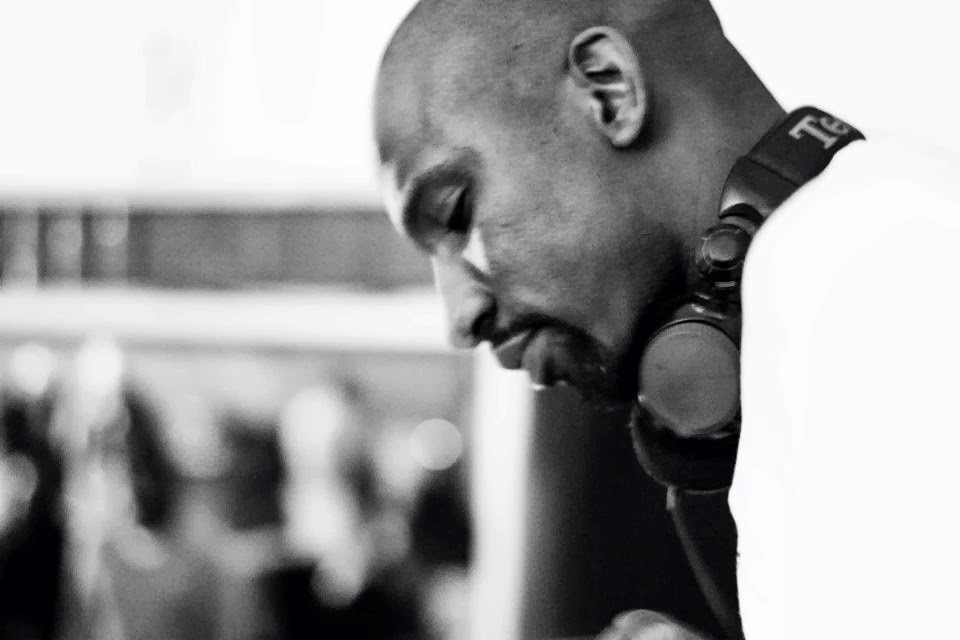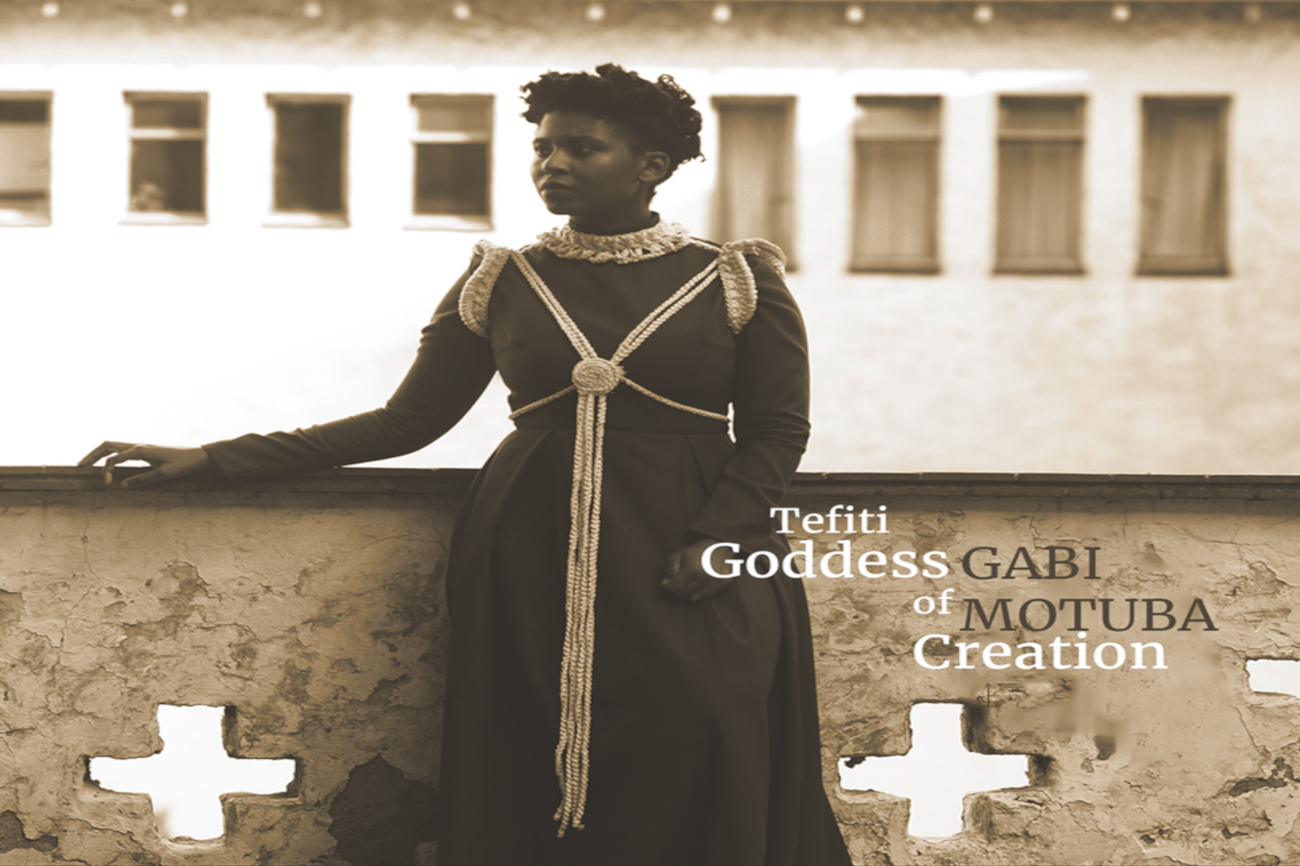All genres. All sets. All styles. All gigs. All regions. All souls. All sensibilities. All ears. Everything. Everywhere. Every time. This is all there is in the name of what is done for the love of music, its sharing and, more even, defying its genre configuration, to refigure it, doing it differently, doing and undoing—avant-garde. All there is to what is being done is the elevation of artistry, the aesthetic sensibility which, in going to multiple directions at once, clearly shows the signs of the time. In dealing with the past, present, and the future in one moment that happens to be the lived present, this is the deluge. All that is in the spirit of conforming is eroded—away.
What is said in the name of this “all” stands for what is done by the DJ. There is art and it is avant-garde in its overflowing state, its manner, its operation, its constitution, its expression, its sharing. If there is this “all” and that has to do with what should be set within a limit, this is the opening, and it dares to be distinct. This is in letter and spirit. It is the signature and its power of veracity. It is, in short, an identity. If there is the mainstream and its super chart hits, and everything in broadcasting and the press, there is a different route for the Giyani-born Kulane Trevor Mavikane, a DJ known by the stage name of Trev The Japanese, who, in his craft, always takes the alternative route, thus declaring himself a spinner.
The musical craft for Trev started in the Presbyterian Church, Giyani. There, he has been sharpened to be a vocalist in a church choir. Correspondingly, to note, he was the opera singer. The musical influence of Trev has meant him being a musician. This is something that has an interesting family history. His maternal grandfather, D. D. Malongane, was a composer. His paternal grandfather, J. C. J. Mavikane, was a composer. The latter, interestingly so, was a conductor for the church choir of which Trev was a member. Also, of interest, Vallery Malongane, Trev’s mother, was in the same choir as her son. Yes, grandfather, mother, and son in one choir. This attests to how music has been a strong bond in Trev’s family life. And, just to punctuate, the grand maternal and grand paternal musical influences made a huge impression on his musical life. Today, it will be seen as a shock of some sort that choral and opera music are his roots. Both at primary and high school and, so too, the church, Trev has been active in music (school and church choir, alike). Trev’s musical influences, without doubt, run deep. Both choral and opera have avant-garde traditions that are still at their height even today. For Trev, then, these morphed easily to his avant-garde sensibility as a spinner. It is in 2004 that he left the church choir to focus on his spinning career. It is here where he continues to wander in the galaxies of soundscapes.
The expansive repertoire that Trev has been tapping into is what has been influenced by the legendary harpist, Andreas Vollenweider. It is his love for Vollenweider that will make Trev enjoy playing music. This, of course, comes from the early 1990s. He will play casual practice with friends. Leading musical aspects of things have been his devoted art. In the 2000s, together with friends, Trev will play music at their house parties. Playing music became his thing. And, today, it can be said that this is his life.
Trev’s music collection was just for pleasure and playing for friends. With his pocket money, collecting music will be his devotion. This started while he was in Giyani and he will collect music that he termed to be “rare stuff.” Trev says: “I got a lot of music and I have been playing it. I did not believe it to be out there. I never took this as something serious.”
Cutting his teeth in Club Jive, Sunnyside, the year 1997 became the inaugurative mark. Things became serious. DJ Kanunu (real name Thabo Matjila) took Trev to the mechanics of the DJ equipment and the rest is history. Being surrounded by DJ Clifford Phalatse and Vinny Da Vinci (Vincent Montshegoa), Trev was encouraged to do more and more. Undoubtedly, excellence is his trait.
What happens in Trev’s sets, who does not call himself a DJ but a spinner, is what comes as the elevated touch of things that are in the sonic realm. It means that there are breaks but they occur in no sense of interruption and are being taken in a different direction at once. Even in terms of time, and if the avant-garde manifesto is to be considered, it is clear that there is a leap from one epoch to the next, present to past—or, if you like, blurring time, making and unmaking it. And, by morphing through genres and sub-genres, shifting from one to the next, putting and splicing them together, sets tell something deeper and there is a groove going on. These sets are the scripting of the avant-garde manifesto. It is the content of what must be told amid silence. There is a need to do what is different, but what if the prohibited keeps the groove going? Offering the colossal set, and that being in the mould of all music, Trev does this to make the case for what the avant-garde manifesto says. It says, in short, “no bounds.”
What has kept Trev going is what drives him inside, the undying love for what he enjoys—music in its purest and broadest sense. He can play anytime and anywhere. But he cautions: “It is difficult to play for the crowd that does not know alternative music.” He does better when he rides on those who love and enjoy his music delivery. Since his musical style is alternative, it is known that the dancefloor will not be made to be a sweaty affair. Chilled and mystical tunes are what he will deliver without fail. Trev is brave to kill the groovy mood and start the vibe afresh. This he will do, commonly, by playing acapella socio-political speeches or any atmospheric instrumentation as a way of opening his ambient and amoebic sets. But he is safe in opening sets if the genre is often house. But he can be at whatever spot in the line-up. He will do what he loves, playing alternative music. In doing so, he does not, at all, fear chasing the crowd away. But what must be said is that he will draw the crowd in again. He is always on that ticket of alternative music. This is the audacity of having to play. But among those who are fellow travellers in alternative music, he is always at home. But through his audacity, as the avant-gardist, he makes a home even in inhospitable places. He carries the alternative music flag and waves it high.
The constellation of sounds is what comes from Trev’s set, and this is the sonic imagery that he etches to the souls that come to encounter his sets. To his audience, he says: “I want to keep you moving, I want to do this to your body.” Of course, this comes in a way that the body will be hit by the tune.
In his manifesto, Trev is daring. This manifesto is all about making the unfamiliar to be familiar. When the spinning happens, the music becomes what is in its broader scope. This is the music, in a form of a deluge that upsurges and upsets. Still downtempo, it makes its steady access into/onto what might be deemed inaccessible.
Trev always explores music. He takes his sets very seriously. His love for longer sets is nothing but intensity. Between 2010 and 2014, he and Vinny da Vinci frequented the club called Delux in Cape Town monthly without fail. Trev will open the set and he will make that to be the brick-and-mortar of the gig. This project was called “The Deep,” and for the years it has run, Trev has made a solid base in Cape Town. It was his duty to introduce his sound. It was unfamiliar but he will try to make it familiar.

What is avant-garde, in the general sense of the term, is what Trev will claim as something special. It is interesting how the events that shaped such a concept in his career will come out. Around 2009 right until 2012, in Beach Blanket Bohemia, Sandton, Trev has been spinning some tunes to make its patrons feel at home and mellow in alternative music. It is here where he also cemented his reputation and that space has been a breeding ground for the avant-garde. “The Beach Blanket Bohemia,” for Trev, became his experimental space, and under the DJ residency of John De Baptist (John Mokolobetsi Ditshwene), things even became more intense in having to launch avant-garde events as a form of gathering. Perhaps to state, on another note, the origin of the event was in Rockerfella, a still vibrant club in Molapo, Soweto. This is where the collectives started in a solidified fashion.
In March 2011, Trev and Khaya Simelane (also known as KsK) as well as SkinDeep (also known as Tshediso Leanya), went under the name To Japan With Love. This, then, gave birth to what the collective will later be called Avant Garde Vintagelounge. It is this transition of renaming that will keep the concept of avant-garde alive. The collective, based on expanding their repertoire, later called themselves what remains today, Avant Garde Troupé. Now the collective includes Thabo Phalatse.
May is the anniversary period and this is done in terms of the milestones of what the collective has been. There were fifth-anniversary celebrations and in 2016 the May event was termed Five Years of Authenticity. There are also the outfits of the collective called Sankofa and also Connecting the Dots. What is clear in the collective is that what is avant-garde is in letter and spirit—that is to say, unorthodox, radical, and experimental. Just to add, these movements are all about “what is not out there” or what is trendy or sexy. Instead, it would mean having to stand out there not only to be counted but to be the one doing the counting. Working in as much a way that does not seek recognition but makes a difference in the musical scene. He is doing what it takes, and it takes guts to do what Trev is doing. The radical adjustment of sensibilities, or their rupture even, in their sense of the sonic palate, is what should be contended and settled with when it comes to the mixes of Trev. In them, it is all about the groove and, in particular, of all things alternative.
It is in Trev’s connoisseurship where resonance is found in what might be dubbed discordant. He refuses to settle into any genre. Being an unsettler, he is an explorer too. He gets to the musical world and finds home everywhere in the world. He searches in all musical homes.
For the closed-minded, who claim to be purists, Trev becomes their redeemer, should they be open to receive his sonic note. Should they open their hearts, and then, ears, their purity will be fudged as there will be no fuss and its stubborn buzz.
This is the work of mysticism. Trev stands as a dean. This is a figure known for its significant authority, its executive leadership and grounded marshalship. The significant authority in the unit of music is the position that Trev holds as a spinner. There is a ceremony that ties things to the visionary faith of beauty in what the dean does—Trev that is. Ears are always cleaned off the wax so that they do not become deaf and adept at what is known. Trev's authority is what finds its expression by tapping into the domain of the unknown. In his quest to broaden his insight, and to become incisive, he bends things to be amoebic edges, spinning around what is pointed in a particular direction, taking easy what is deemed to be nonsense and turning it to sense.
The idea of the mix tape in its original sense comes to mind where all music was there. Even though there was genre, the mix tape of all genres has always been there. That is what Trev brings to life, and this is sustained by the curation of weaving different genres to be one mystical song—that is, the song of many, many songs, folding into one, that flow.
Here is the miscellaneous figure who plays the music on one occasion and makes one set, track by track, to be different events (certainly, and thus meeting high expectations, mixing flawlessly in that one set). He is working on the souls of those who are listening in different ways than one. Taking their souls in, and soaking them in the realm of uncertainty, makes the groove to be something that goes fundamentally deep in different places at the same time—or, even, in and out with ease. That, certainly, is Trev.
It is correct, then, to call Trev the avant-gardist. If each genre has its rhythms and tones, Trev brings them together. In this form of sonic intertextuality, the issue is getting behind what is popular. That is why there is that overflowing concept in all his sets. In this sense, he sticks to what must bring disparate elements together and they must become one. And, in this unsettling, it does not mean that in his track selection and mixing there is no flow, but what is there is the overflow. The elevated form of artistry is in place. Why different genres? They give the audience more. Trev’s set is not only a collage but a travelogue whose pedagogy is of all things musical. As opposed to being didactic, it is however dialogic. Out of the convention. It goes from one to another. It is not known what the next track is, and not only that, what genre it is. This, just to state plainly, is the motley touch of all things avant-garde. As his sets and the music therein travels, borders that make the genre are rendered porous and other vistas are mapped out. “It is more about elements of each song I play,” says Trev. What comes out as the point of emphasis is that there are different worlds elsewhere.
It is known that Trev pours raw ingredients of what makes house music (which is to say he is not genre-bound to house music, but what comes before it). Hearing what comes before any re-mix, by that being house music, means that its ante-form is what is played. He is playing the music that is yet to come to house, what is yet to be sampled. This, in a set, comes out like what Trev says: “I can play different songs, but they will have the same message and/or instrumentation.”
Raw and organic, the different tracks he plays touch people and there are going to be different emotions sparked. The creative source of all this lies not only in Trev’s generosity but his vulnerability (his love, even). He submits and studies what is creative and experimental. The chordal discords, and finding a rhythm that demands the leap of faith in having the goal of touching the ears of those who are at the receiving end. But the audacity of doing what Trev does also lies in playing what others love and what they are estranged by.
By ante-form, the avant-garde manifesto comes into being. By taking music seriously, he takes himself and those too who he serves his music seriously. This is what makes the avant-garde to be the spirit and the creative force, and by way of a declaration, a set is made to be a manifesto. It is made known what Trev is all about.
The actionable thing that comes out of these sets, is the proper story whose discordant inscription (from one track to the next thus mixed seemingly), the aim is to disturb the senses, there is no one emotion but their plethora. What comes from what might be thought to be discordant is what is done, what is on point, a resolve.
If there is the avant-garde manifesto, and that being a spinner’s set, what is a big deal about it? The question seems to belabour on the obvious, the inspiration and the core of this must do dwelling on different sites.
This is the music of the ceremony of the multitude. Different ears from different spheres, the gathering of the following and moving with them. This demands the work of re-invention, that which is, in itself, doing what changes the scene. It is not what comes possible that is at stake, but the impossibility that is brought to exhibit what must come into being. The issue, again, is figuring out tracks by going through what comprises a set right at the moment of its deliverance. There is no way of preparing ahead, every track takes the form of its character, and it will signal which ones are to follow, and the selection must be one after the after. The thing of getting down right at the moment is what makes things that are subterranean to be brought onto the surface and they must emerge as they are. The fact that there are different genres in each set, makes the ceremony of the multitude to be those who are willing to be in different places at the same time. Those who are willing to feel what is always different, do enjoy being part of the ceremony of the multitude because they are one with the music that Trev delivers.
As an avant-gardist, Trev laments with those who get the feel of what comes before them, those who feel the thing that is not of the many, that inside thing, but the few who wish to be with the many. There is a wish for the many to feel what the few are feeling. That is why Trev is not out of reach but within reach. His musical taste is not elitist, nor is it, on the other hand, popular. It is what is out there, what must be reached, felt, and touched.
If the avant-gardist is the one who must experiment with new ideas and methods, this is what Trev is. If this is seen as controversial, he will not shrug off that, but it goes beyond that. What Trev does is necessary. The avant-gardist is known to be someone daring, untried, advanced, original, and revolutionary. This is the figure of mystery, the one whose investigative force changes time by being outside the norms that prevail. That is why Trev opens sets to guide what lies ahead.
Playing free as a spinner, he is contributing to the quality of music that is underground. This is the proper sound that makes the musical archive, old and contemporary, open. The collage of genres that comprise a set is what makes the imagination not only rupture, but things are going deep. Effortlessly mixing the ins and outs of genres, penetrating another while exiting from another, doing that to build a set, this is the journey to elsewhere and it is what is in no need of a map, but getting lost. This is the way of showing that there are multiple directions at once. It is clear that the work of Trev is of someone who stands by what he believes in, and he always stood strong with the music. He believed in it. He is rooted. He is, in himself, of that music.
But one thing that comes to being is the issue of his name. Well, he is not Japanese. But one thing is for sure. There is nothing that separates Japan and the avant-garde tradition. This is what Trev does. If Japan is known for its long history and contemporariness of the wonders of its avant-garde designs, it has been nothing less of being masterful, what has broken and reshaped cultural barriers that have to do with modern sensibilities which Trev is a carrier, a patron, even. If there is anything that is called Japanese fashion, there are no kimonos that Trev wears, but there is the refiguring of Japan in his artistic practice. There is a sonic cocktail that, for him, has something to do with the elevation of the art form.
There is no hyperbole when it comes to what Trev does. There is a dramaturgical narration that unfolds in the set, and there is a constellation of sounds. But there is something that is pressing, and this having to do with what is a different ear, the musical taste that is of a multitude of genres and sub-genres, clearly shows that there are different worlds out there. And, on the verge of it, there is depth.
Rocking the B Side of the vinyl. Listening and playing the vinyl as a whole. It is the alternative ear that makes the avant-garde craft that comes as a sensibility, and it is what Trev does in making things become what is far from what is out there.
Sometimes there is all that there is in terms of being timely, and yet, belatedness gets transfigured into what can be termed to be relevant. But it is in the territory of unfamiliarity that Trev The Japanese wants ears to be confronted. It is not that he wants to be understood, but he wants to open many other worlds and stretch the concept of genre and multiply it endlessly.
The drive that is in Trev’s set, makes the avant-garde manifesto be what is not legible or sensible, but what is picked up right at that moment. This is the recognition of the present as it is unfolding. This is what is happening live, at the right time, this time. This is what Trev is doing. It is an invention in its puncturing sense. If there is anything that has to do with the conventional enclosure of what is a DJ set, and that it must be genre or sub-genre bound, that within kind of thing, this gets blurred in Trev’s avant-garde signature.
The avant-garde manifesto is steeped into a downtempo feel of what refuses to be pinned down and thus hits things from the core, and the underground music is out there. The audacity is having to do what other DJs are not doing. It is known that Trev’s vision is radical, and this is his vision. In a sense, the set as the avant-garde manifesto becomes the logic that breaks down all the enclosures and playing the right music, what he loves, is what makes things different.
In playing different genres in one set, Trev is doing what can be called musical reconstitution. It is putting things together and that enhances a new musical language. This language is straightforward, but not in the sense of monolingualism, but different tongues speaking at the same time—creole. This is the musical language of those who stand for the advanced. They make people of common tongues speak in many languages. That is why this creole is many tongues coming to speak in one ceremony, and the story becomes the rich one.
Trev, indeed, is a storyteller. If there is anything that is about telling a story, it can be said that these are not only short stories, but a unified narrative that shows that there is a threat that lies in the subterranean surface of what might be believed to be different. It is not that Trev is making one genre, he still lets them be genres and mixing them is a way of telling a story of different stories. Yes, there is no paradox in this. It is a different telling. The issue is not getting a point but getting to the point. Stories are connected to a larger whole.
Certainly, the ear does not know where things are going. Trev does it and he is always having a surprise in store. It is coming to an encounter with the unknown. And, for Trev, it is not worth a set, but with each track. In a set, there is jazz, funk, salsa, bosa nova, zouk, afrobeat, high life, benga, mbalax, R&B, bachata, house, reggae, dub, blues, trip-hop, mambo, lounge, breakbeat, hip-hop, makossa, and dessert blues in one set, this is mapping the world. This goes far, wide, and deep. Here is the sojourn of the wanderer, and whenever he departs, the journey elsewhere is what makes things interesting because in this wandering there is nothing but mystery.
If there has been a saying that there is a genre that a DJ should stick to, this is shunned. It is all and everything. And in that, there is all or nothing. This is how Trev The Japanese does it. If there is a genre, this becomes proliferated into genres. If there is a universe, this is reconfigured into a pluriverse. There are many places to go to. Even so, many things are going on. These are the places that make up the worldly nature of his music.
What is heard most, in these sets, in the way, that Trev does it, is bold in the setting that appears to be the house scene.
There is nothing of an assemblage if that means pulling disparate genres and sub-genres together, instead, something different is happening where the art of being a DJ is a litmus test, and things mean getting into the core of what is sound. What is patterned, by way of the avant-garde manifesto, Trev is making those who open their ears to his music be in different moods and wander around the post-colonial map, and forge imaginaries. He is comfortable with his vision, and he is there telling a story, and this is the story of the artistry of music in its expansive form.
The music that is played is the one that sets the groove and is where things are going. It is the world of Trev the Japanese that is being invented and it is its sojourns through sound that make it to be all music, and this is where things are going. It is the courageous journey of knowing that all music makes the bravery of breaking all genres and wearing the avant-garde badge, this is the re-making of the world. With emphasis, Trev states: “Artistry should not be defined, it should be borderless.” This is what the avant-garde is. This is what comes in the way of making sure that they are mapping the territories that are going elsewhere. This is where the music is at, everywhere.






















